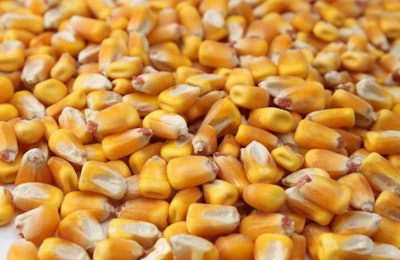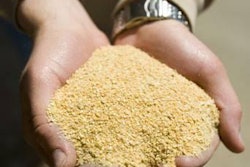
Study shows Chinese trade policy restricted imports of U.S. corn, grains long before trade war began
Chinese trade policy cost the U.S. $1.4 billion in combined corn, wheat and rice imports — and that was before the trade war began, according to a new study from the University of Illinois.
The paper, published in Agricultural Economics, quantifies the effects of Chinese tariff rate quotas on rice, corn and wheat in 2017 — before the trade war began, but after the United States’ 2016 complaint to the World Trade Organization that China had used its tariff rate quotas to restrict trade. U.S. wheat was particularly hard hit; imports could have been 80% higher had it not been for the quotas, but corn and rice were also impacted to a lesser extent, according to University of Illinois post-doctoral research associate Bowen Chen.
The results are in line with the WTO’s 2019 determination that China had, in fact, sought to curtail free trade with the use of its tariff rate quotas in violation of international agreements, though the WTO did not release figures to support its decision.
Wheat saw a larger impact because foreign wheat in particular is seen as a luxury item in China, Chen said. But when the nation’s tariffs cause prices to rise, consumers are quick to cut luxuries out of their budget, while they continue to purchase essential commodities such as corn.
“A diamond is a luxury good. If the price increased, you would reduce your purchase,” Chen said. “But you don’t change your consumption of staple foods.”
But it’s not yet clear, Chen said, how the trade war may have impacted these trends. He began his work on the subject as a graduate student shortly after the U.S. filed its complaint. His dataset spanned 2013-17 and ended before the trade war began, though he is now working on additional research tied to the trade war.
But the trade war could, in a sense, benefit U.S. grain producers, Chen said, because the first phase of the trade deal designed to end the conflict also stipulates that tariff rate quotas must not be used to prevent the full utilization of the agreement. This, Chen said, will likely increase grain exports to China.
However, China’s imports of several grains, including corn had begun to decline as early as 2013 due to factors outside the international trade dispute. China began a campaign to diversify its imports of corn in particular in 2013, primarily because competition from other international markets has grown, Chen said. The nation’s grain stocks, especially of wheat, have also increased dramatically in the past four years, though it’s not entirely clear why — domestic production has increased, but not sufficiently to account for the entire increase.












